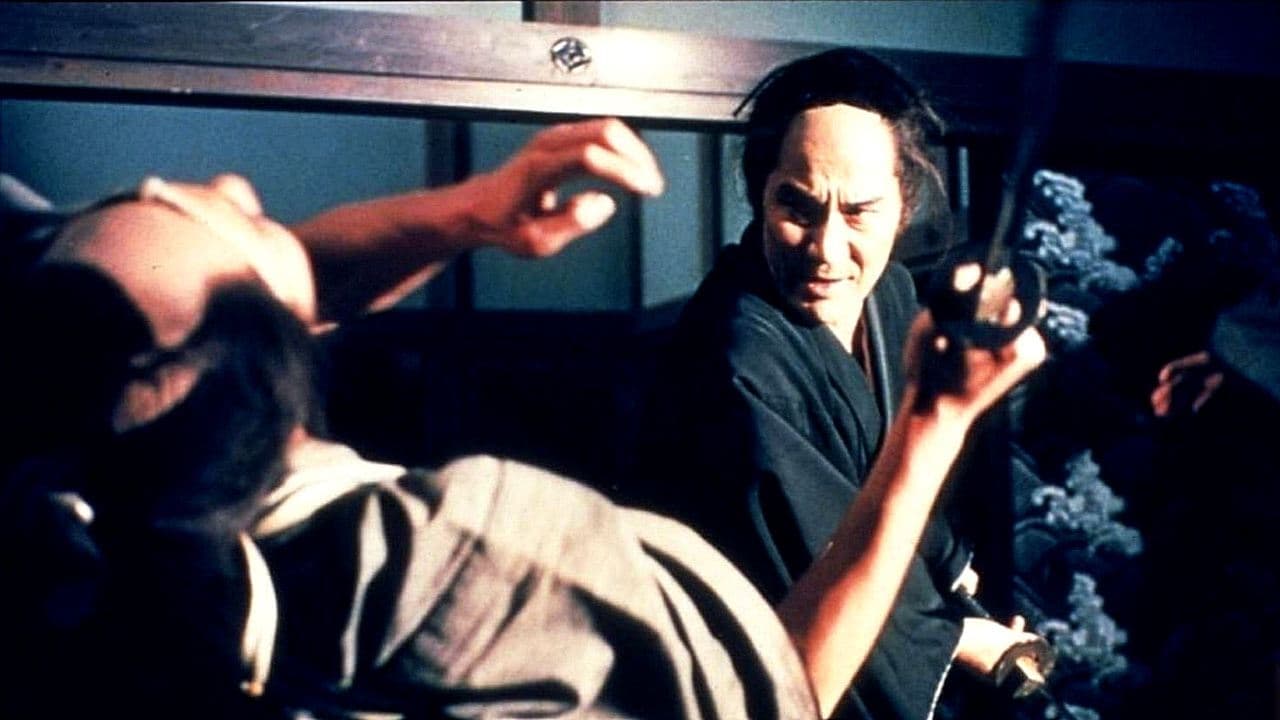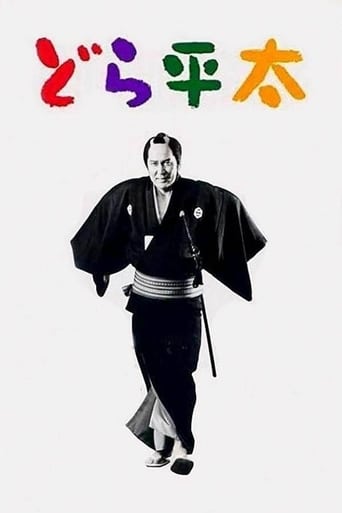

This film begins with a new magistrate being appointed. He's apparently the fourth appointed in the last year in this film set in the feudal period in Japan. Past magistrates were frustrated by the in-grained corruption and gave up--but this one is a bit different--he ALREADY is corrupt."Dora-heita" was an enjoyable film but I can't help but think that I was always expecting more--like there would be some amazing resolution to make it all magical or at least more interesting. That's because you know that the incompetent debaucher is going to eventually spring his trap and reveal himself to be a gifted and powerful foe. But, while this eventual unveiling occurs, it all just seemed quite anticlimactic. Also, the action, sometimes was pretty good (such as when Dora-heita fought guys with swords with only his bare hands or a knife), at other times seemed a bit second-rate as well. And, oddly, there wasn't any blood. Overall, it's okay...
... View MoreBecause a film may have some comedic elements it does not make it a comedy or even a funny movie. We often have amusing scenes to "break the tension" in "serious" ventures. This was neither of the above - not a comedy; not a "serious" film.Nor was this a Chambara film. There was swordplay, but the artistry of the blade was missing; and, there was but one scene where steel was drawn.So, we are left with a story of a sheriff who comes to town, and cleans the place up. I mean Samurai. It's your typical Eastern-Western that holds no surprises and our hero never needs to reload his blade.It could be that the collaboration of four of Japan's greatest directors makes this film a bit of this and a bit of that and a lot of disappointment.
... View MoreThe City of Horisoto is in bad shape. It's full of gamblers, thieves, prostitutes, smugglers, drug addicts, and Yakuza. At the center of this are three bosses who each control different aspects of the Hirosoto underworld; specifically Bosses Taju, Saibei, and Nadahachi. Magistrate Dora-Heita is dispatched by his lord to clean up the City... and possibly the local government as well. The only problem is Dora-Heita is infamously known as a drunken, debauched, samurai with unusual tactics (to say the least). Will he be able to clean up the City or is he just-as his reputation suggests-a philandering, gambling, drunkard?Although produced in 2000, Dora-Heita is truly a product of the late 60's. Written by the "Four Musketeers" (Akira Kurosawa, Kon Ichikawa, Keisuke Kinoshita and Masaki Kobayshi) in 1969, and directed by the last surviving member of the troop, Kon Ichikawa. The film's script sat around for 30 years until Kon decided to commit the text to celluloid. For those reasons, the film closely resembles 60's Chambara in form and tone. Those familiar with Kon Ichikawa and Akira Kurosawa will know what to expect, and they won't be disappointed.But for those who aren't familiar with the works of Kurosawa and Ichikawa I will elaborate. Dora-Heita is a slow but correspondingly paced samurai epic. Don't be expecting a non-stop slaughter-fest or you'll be disappointed. The film actually only features one true sword fight(which is incredible) and if your only in it to see the obligatory blood splatter from sword strokes... than this isn't your film. In fact, Dora-Heita doesn't even enter the City until the film hits its 45 minute mark. Dora-Heita's true allure is in its direction, dialog, plot, and acting. Kon Ichikawa's direction is excellent and typical of early Chambara. Kurosawa fans will be especially delighted to catch shades of the late masters great repartee throughout the film. The plot is also reminiscent of Kurosawa's dual masterpieces Yojimbo and Sanjuro, (although Dora-Heita isn't on the same level as those masterpieces). And Koji Yakusho is great as the cryptically competent Magistrate Koheita (a.k.a. Dora-Heita). On top of everything, the film has some pretty funny comedic elements to it too, I found myself chuckling throughout at Koheita's exploits. Add all these qualities up and you have a very fun and involving film.The film does have some minor faults. The plot might be a little too much like Yojimbo for it's own good. Some scenes run on a little long, and sometimes the dialog becomes a bit superfluous.Bottom Line- Not an outright Masterpiece, but a damn fun two hours.
... View MoreRemember Koji Yakusho from SHALL WE DANCE, UNAGI (THE EEL), CURE or TAMPOPO? The Japanese box-office star is the new magistrate in a corrupt town who spreads rumours about his negligence and dubiosity only to get rid of all the bad guys he has to face and who underestimate him then completely. Dora-heita is an example for a streetwise and easy living guy with the classic abilities of a samurai - although he is making fun of them. The sword fighting seems to be classic but is hidden in camera movements, cuts and other tricks because Yakusho hasn't got the presence and fighting abilities of a Toshiro Mifune. The film was planned long ago by the four famous directors Kurosawa, Kinoshita, Kobayashi and Ichikawa who formed Yonki-no-kai (The Committee of Four Knights) in 1969 and wrote the script together. Only after three of them had died, Ichikawa could finally make his 74th movie out of their script.
... View More